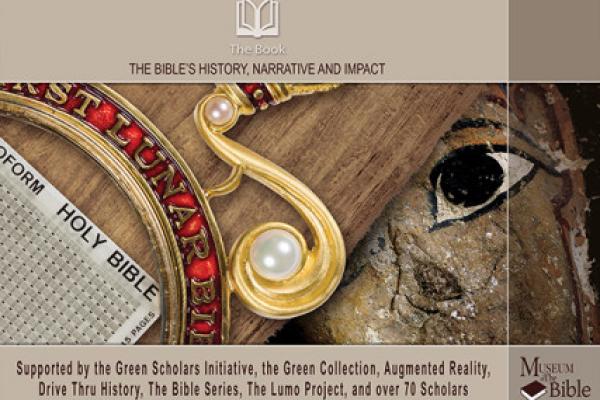On April 14, the school board in Mustang, Okla., voted to institute an elective Bible course. This is not news. More than a thousand U.S. public schools offer Bible as literature courses.
In March, Hobby Lobby argued before the Supreme Court for a religious liberty exemption to the Affordable Care Act. Now Green is promoting the Bible curriculum the Mustang school board just adopted — a curriculum he predicts will soon be adopted in hundreds, perhaps thousands, of American public schools.
In its decisions on religion in public education, the Supreme Court has distinguished sharply between preaching religion (which the First Amendment prohibits) and teaching about religion (which it allows). Courses that explore the Bible “objectively as a part of a secular program of education” are in its view constitutional.
But will the Green-funded Bible curriculum be secular and objective?
“It’s not about teaching the Bible as literature,” Seidel told me. “It’s about teaching a particular religion that uses the Bible.”
Timothy Dalrymple , editor at Patheos.com and one of many evangelicals consulting on this project, said he signed on only after hearing that Green was determined to produce a “fact-based and non-sectarian” textbook.
Counseling patience, Dalrymple is confident that problems with the current draft will be fixed. “It’s the best Bible curriculum for public schools that I’ve seen by a long shot,” he said.
You cannot make sense of Western art or American literature without basic biblical literacy, and in a country in which Christianity so deeply informs political rhetoric, knowledge of the Bible is essential for citizenship. So I am an advocate of public school Bible courses. And there is much to praise in the 200+ pages of the April “working draft” of the textbook I reviewed. The writing is clear, catchy even. Its emphasis on the Bible’s impact on music, literature, and film is laudable.
Nonetheless, I have two key objections.
First is the tendency of the authors to view virtually every Bible story through a Christian lens. The story of Adam and Eve in the Garden of Eden is presented here as a narrative of “The Fall” of humanity from innocence into sin. But that is a Christian interpretation. Jews, who do not typically believe in original sin and therefore do not seek salvation from it, do not read the story this way. Yet this is the sole interpretation offered.
My second objection concerns the inability of the textbook’s authors to resist the temptation to assert the Bible’s truth. This claim is asserted repeatedly, sometimes through leading questions (“How do we know that the Bible’s narratives are reliable?”), sometimes through graphics that provide check marks in boxes regarding the text’s “reliability” and “historical accuracy,” and sometimes through maps that, by pinpointing where biblical events occurred, shut down all doubt about their historicity.
In one “summary” box, this draft reads: “We can conclude that the Bible, especially when viewed alongside other historical information, is a reliable historical source.”
In an April 2013 speech to the National Bible Association, Green described the Bible as “true” and “good.” He has every right to this belief. But it is not a self-evident proposition, and there is no place under the Constitution for a textbook that requires public school students to pledge their allegiance to it.
Stephen Prothero is a professor in Boston University’s religion department and the author of The American Bible: How Our Words Unite, Divide, and Define a Nation. Via RNS.
Got something to say about what you're reading? We value your feedback!
